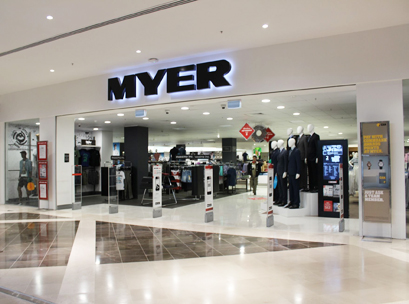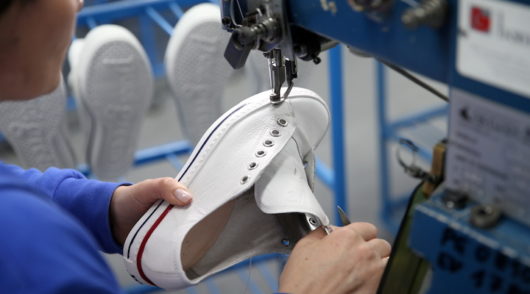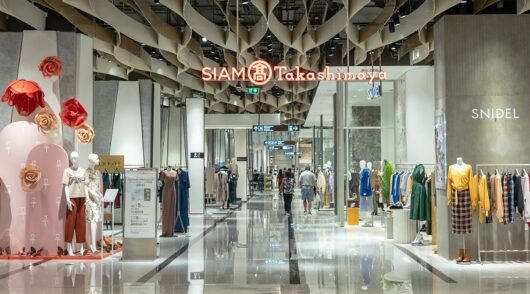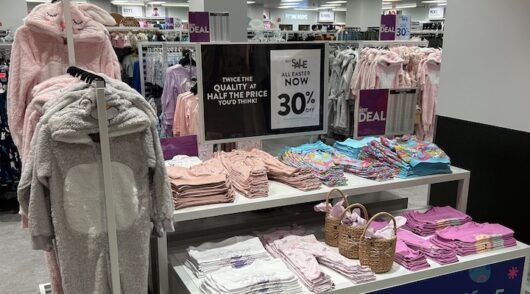 Where is the love? Valentine’s Day last week ended the relationship between Richard Umbers and Myer, a month short of three years.
Where is the love? Valentine’s Day last week ended the relationship between Richard Umbers and Myer, a month short of three years.
After three profit downgrades in two years and with a substantial writedown on goodwill and intangible assets looming, Umbers’ leadership had become untenable.
With dismal first half trading results to be released next month, amidst growing investor frustration with excuses, promises and revised performance targets, the Myer board of directors decided Umbers could not deliver a turnaround in the business.
Undoubtedly, there was an element of self preservation in the Myer directors’ decision to end Umbers’ tenure, with Solomon Lew, a substantial shareholder and agitator, poised to resume his campaign for wholesale changes in the department store chain.
However, chairman Gary Hounsell and his fellow directors were also being pressed by other institutional investors, who had seen the value of their shareholdings plummet as each assurance of progress in the turnaround had been found wanting.
Survival tactics
Arguably, the two most important people for Hounsell and his directors to listen to right now are Umbers and his predecessor, Bernie Brookes, who has just returned to Australia after steering South Australian retailer Edcon through a financial mire.
From them, Hounsell needs to gain an understanding of the mistakes they made and what they would do differently if they had their time over again. Since the announcement of Umbers’ departure, he has assumed the role of executive chairman.
Before embarking on yet another turnaround plan, Hounsell needs to understand Myer’s failure to devise strategies to compete against online retailers and global competitors entering their local markets.
Brookes, who retains a two per cent shareholding from his nine years as CEO, has made it clear that he has no desire to return to an executive role at Myer but has already provided his views on the problems, challenges and possible new initiatives to revive the department store.
Hounsell revealed the board had discussions with Umbers in the days following the crucial first half trading result, which revealed a 3.6 per cent fall in total sales to $1.72 billion, including an alarming 6.5 per cent drop in the January stocktake period.
Hounsell said Myer has immediately commenced a search for a new CEO and managing director, a move that will attempt to stave off any incursion by Lew, including an attempt to spill the board of directors.
Announcing the demise of Umbers, Hounsell said directors are “impatient for a turnaround in the company’s performance and the board has determined that it was in the interests of all shareholders for there to be a fresh approach to drive our future direction”.
Umbers was a surprise choice as CEO when Brookes decided to leave Myer in 2015 after nine years as CEO through private equity ownership and an ASX-listing at the princely sum of $4.10 per share.
Last week Myer scrip was sinking to new lows of below 56 cents after three years pursuing strategies in Umbers’ turnaround plan for the department store.
According to Hounsell, the turnaround plan itself is not under review and was the right strategy despite Myer’s deteriorating financial position – it was simply not gaining traction because of execution issues.
That concession plays into Lew’s view that Myer is in difficulty now because there was too little retail experience at board level, Umbers lacked experience in department store retailing and the executive ranks around him were depleted.
Lew’s view is shared by many analysts and investors but even though Myer’s fortunes have declined further since the retailer’s annual general meeting last November, most institutional investors still don’t see Lew as part of a solution to the challenges ahead of the company.
Hounsell is convinced there would be people with the necessary skills and experience to take up the challenge of leading Myer despite its current problems.
Next steps for Myer
Hounsell is also adamant that the impairment on the goodwill and intangible assets would not tip Myer into the hands of administrators, a possible scenario if the writedown breached banking convenants.
Notwithstanding the march of the internet, it would be almost incomprehensible to most Australians for the iconic retail brand to be placed in administration, yet that could ironically be Myer’s saving grace.
One of the key issues that Brookes has highlighted in discussions with Hounsell is the fact that Myer has too many stores and is locked into long-term lease commitments that restrict its agility and feed a cost base that drags on profits.
Myer needs radical surgery urgently to ensure its survival.
Whilst it would be a very big and disruptive play for landlords and concession operators within stores, entering into administration as a consequence of the soon to- be-announced impairments would provide the retailer with the opportunity to restructure more quickly, effectively and more cheaply than it otherwise could.
Brookes claims Myer could close 40 per cent of its current 59 stores and improve its return on investment and profitability while shedding only 10 to 20 per cent of sales.
In June last year, the operating lease commitments for Myer tallied $2.7 billion and act as a straitjacket on the retailer.
Closing stores represents a change of tune for Brookes, who embarked on an ambitious store opening program as CEO, the wisdom of which he was himself questioning three years ago when he handed over leadership of Myer to Umbers.
Closing underperforming stores was part of Umbers’ strategy and three more stores are currently slated for closure when their leases expire.
The expansion to contraction change of view by Brookes is one of the reasons that suggests his thoughts on what he would have done differently is crucial to Hounsell, his board and management now.
Indeed, Brookes’ advice to Hounsell since returning to Australia encourages a total rethink of what the department store should offer in terms of merchandise and services.
Brookes argues that there has been little innovation in department stores and discount department stores which are competing for the same customers.
Brookes is right that there needs to be major changes in the merchandising and the look of stores, which have become bland and, in some cases, desolate – visual merchandising budgets have been slashed and staff rosters cut to the point where few customers praise the department store’s service.
Myer, and other department stores for that matter, need to think about radical change if they are to compete with more nimble global competitors who are not encumbered by legacy issues of store design, store numbers and, of course, online vendors.
More than just a cosmetic change
I would suggest that one idea is to relocate some of the cosmetic counters away from the premium entry space at the front of stores!
In my view, notwithstanding that the concessions are a nice little earner and something of an aspirational lure, the cosmetics counters present the same experience to customers every day, of every week, of every month, of every year.
The cosmetics concessions occupy the most valuable space in the department store, space that could be used to showcase new merchandise stories that constantly change, engage and redirect customers within the store.
Customers would still find the cosmetics counters and, I dare suggest, the foot traffic and productivity of the floorspace throughout the store would improve.
For a department store, moving the cosmetic counters would be akin to shifting the Eiffel Tower from Paris, but if Myer is to escape death by a thousand cuts, it is time to stop doing things a certain way because that is the way they have always been done.
As the old saying goes, if you keep doing the same thing, you inevitably will keep getting the same results – that is not an outcome that Myer can afford or that its shareholders will accept for much longer.
There are more angry, frustrated and financially bruised shareholders than Solomon Lew who are looking for evidence that Myer leadership can return the company to sustainable profitability.





